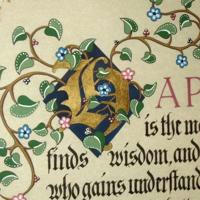
Miscellaneous Illuminations
Miscellaneous Illuminations (shared by Alison)
نمایش بیشتر- مشترکین
- پوشش پست
- ER - نسبت تعامل
در حال بارگیری داده...
در حال بارگیری داده...
...'I want to say a few words about how deeply and how sensitively he experienced his changing times. By the later 1970s Illich had recognized that the moment had passed when the radical change of direction he had urged would have been possible. The institutions whose counterproductivity he had exposed might have acquired a more ambiguous taste for many of their clients, their priesthoods might have lost some of their prestige, and the rituals of progress become tarnished, but this would only translate into a protective cynicism, and the accommodation of a countercultural element within “the system.” What Illich had sought — the disestablishment of all secular churches and an end to their monopolies — would not occur. He had also begun to realize by the early 1980s that the world was undergoing a surprising change of state with the advent of an age of systems in which people increasingly “occupy a new dimensionless cybernetic space.”[108] The industrial era had still seen technology as something shaped and deployed…
...'I want to say a few words about how deeply and how sensitively he experienced his changing times. By the later 1970s Illich had recognized that the moment had passed when the radical change of direction he had urged would have been possible. The institutions whose counterproductivity he had exposed might have acquired a more ambiguous taste for many of their clients, their priesthoods might have lost some of their prestige, and the rituals of progress become tarnished, but this would only translate into a protective cynicism, and the accommodation of a countercultural element within “the system.” What Illich had sought — the disestablishment of all secular churches and an end to their monopolies — would not occur. He had also begun to realize by the early 1980s that the world was undergoing a surprising change of state with the advent of an age of systems in which people increasingly “occupy a new dimensionless cybernetic space.”[108] The industrial era had still seen technology as something shaped and deployed…
